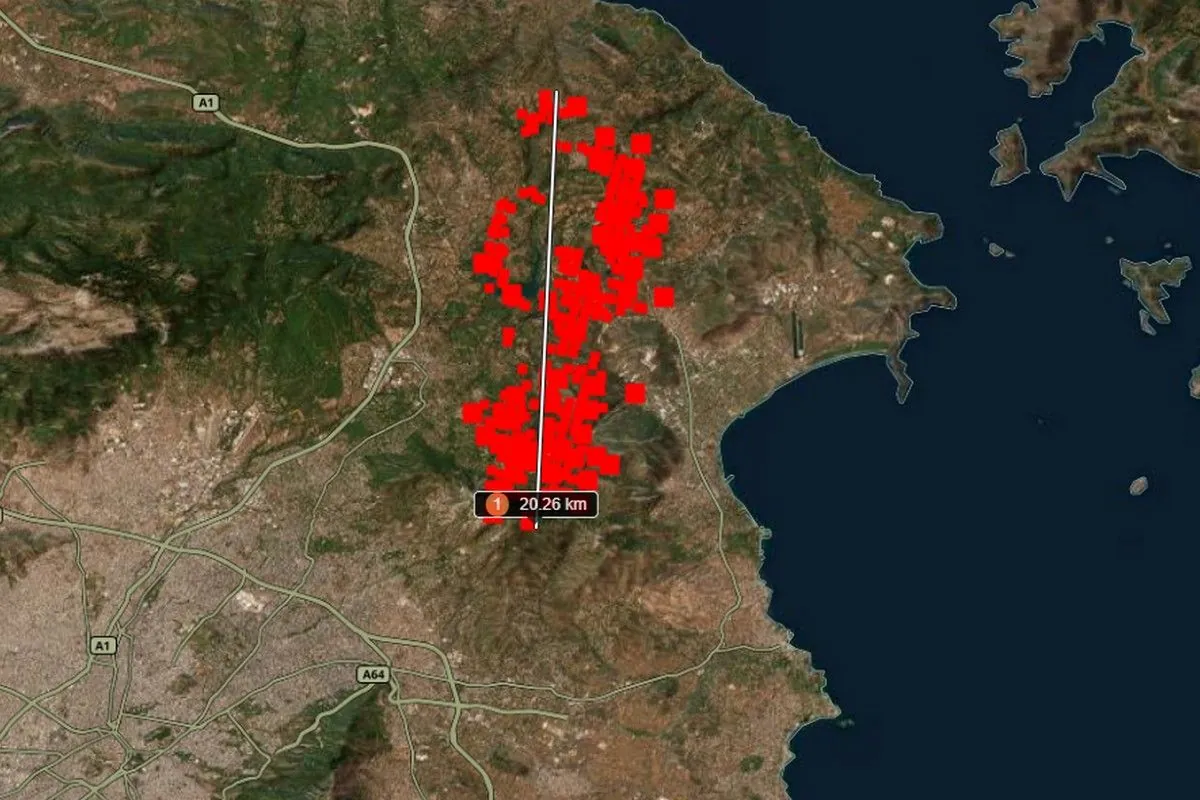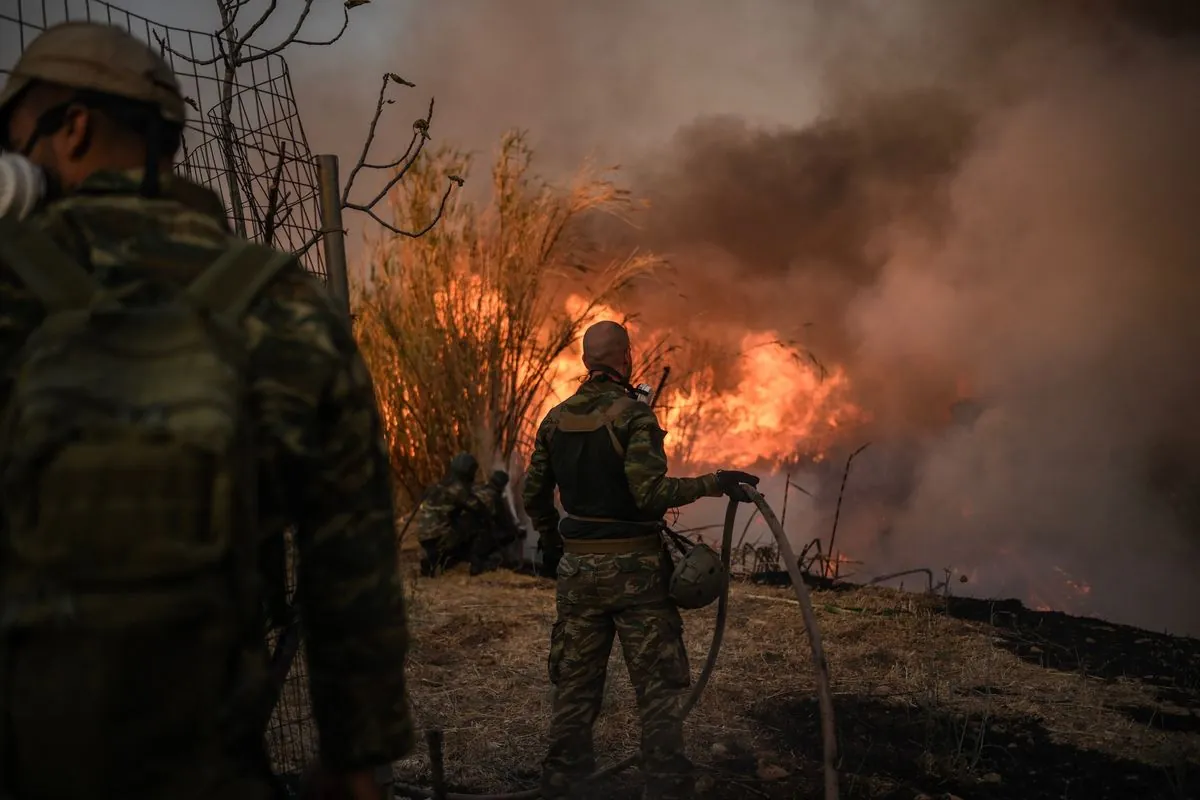Deadly Wildfire Near Athens: Greece Battles Worst Blaze of 2024
Greece fights its most severe wildfire of 2024 near Athens, resulting in one fatality. International assistance sought as the blaze threatens suburbs, forcing evacuations and disrupting daily life.

As of August 13, 2024, Greece continues to battle its most severe wildfire of the year on the outskirts of Athens. The blaze, which erupted on August 11 near Varnavas village, has claimed one life and caused widespread destruction, prompting international assistance and mass evacuations.
Hundreds of firefighters, supported by fire engines and water-bombing aircraft, are working tirelessly to contain the inferno. The Greek Fire Service, established in 1930, has deployed over 12,000 firefighters and 3,000 vehicles to combat the blaze. Despite their efforts, the fire reached Vrilissia, a suburb merely 14 km from central Athens, on August 12.

The wildfire's intensity has been fueled by gale-force winds and exceptionally dry conditions. Greece experienced its warmest winter on record in 2023-2024 and is on track for its hottest summer, with temperatures expected to reach up to 40°C (104°F) in the coming days. This extreme weather aligns with global climate change trends, which have led to an increase in the frequency and intensity of wildfires worldwide.
The blaze has left a trail of destruction in its wake, with local reports suggesting damage spanning 100 square kilometers, including 100 homes. The fire has also impacted the region's rich biodiversity, particularly in the Hymettus mountain range, known for its historical significance and diverse ecosystem.
In response to the crisis, Greece has activated the European Civil Protection Mechanism, established in 2001 to improve the EU's disaster response. France, Italy, and the Czech Republic are expected to provide assistance with aircraft and firefighters, while Spain and Turkey have also offered support.
The wildfire has forced the evacuation of over 30 areas, including three hospitals. More than 250 people have been evacuated with police assistance, with some residents spending the night in shelters. The blaze has also caused power outages in parts of the wider Athens metropolitan area, home to approximately 3 million people.
This devastating wildfire underscores the urgent need for enhanced fire prevention and management strategies. The Greek government's national forest fire prevention program, "Dryades," implemented in 2021, faces significant challenges as the country's forest cover has decreased from 49% in 1950 to about 25% today, partly due to wildfires and urbanization.
As Greece continues to fight this blaze, the country remains on high fire alert until August 15, 2024. The situation serves as a stark reminder of the increasing threat posed by climate change and the importance of international cooperation in addressing such crises.
"We are facing an unprecedented challenge, but I am confident in the resilience of our people and the dedication of our firefighters. We are grateful for the international support and will continue to work tirelessly to protect our communities and natural heritage."


































